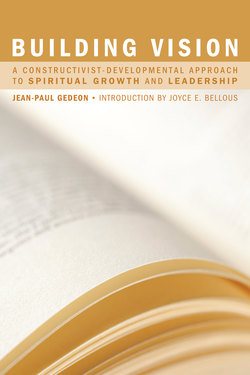Описание книги
Western culture is changing. Postmodern exigencies are encroaching on all aspects of our lived experiences. With them, these exigencies bring tremendous pressures and challenges to Spiritual Leadership-challenges that must be met and overcome, lest this traditional institution render itself out-dated and outmoded.
We are now confronted with the advent of an empowered, educated, and democratically geared population-an epistemological culture that is engaged in its own determination, that has information at its fingertips, that feels entitled to its own points of view, that passionately pursues its own development, and that wants to feel validated in all these pursuits. Postmodern Western society expects its Spiritual Leaders to be able to engage it at a level of depth that is sufficiently cogent to honor individual complexity, personal trajectory and evolution, philosophical differences, scientific relevance, empirical cogency, cultural sensitivity, religious background, emotional inheritance, and existential mystery. It is a sophisticated and elegant culture, steeped in autonomous entitlement and ready to easily discard that which it feels is no longer useful.
In the face of such a stark and startling challenge, what can Spiritual Leaders do to keep up? How do we approach our work when so much is demanded of us? How do we conceive of our vocation in such as way as to avoid the slide into potential cultural 'obsolescence'?
This book sets forth a framework of spiritual growth and spiritual leadership that addresses these very issues. In its pages, cherished traditional messages are interwoven with post-modern therapeutic and care-giving outlooks, resulting in a product that is a must read for Spiritual Leaders today.
Spiritual Leadership must find a way to remain relevant, cogent, and integrated as it toils to disseminate its essential message of growth and transformation into this post-modern world. This book tells us how.
We are now confronted with the advent of an empowered, educated, and democratically geared population-an epistemological culture that is engaged in its own determination, that has information at its fingertips, that feels entitled to its own points of view, that passionately pursues its own development, and that wants to feel validated in all these pursuits. Postmodern Western society expects its Spiritual Leaders to be able to engage it at a level of depth that is sufficiently cogent to honor individual complexity, personal trajectory and evolution, philosophical differences, scientific relevance, empirical cogency, cultural sensitivity, religious background, emotional inheritance, and existential mystery. It is a sophisticated and elegant culture, steeped in autonomous entitlement and ready to easily discard that which it feels is no longer useful.
In the face of such a stark and startling challenge, what can Spiritual Leaders do to keep up? How do we approach our work when so much is demanded of us? How do we conceive of our vocation in such as way as to avoid the slide into potential cultural 'obsolescence'?
This book sets forth a framework of spiritual growth and spiritual leadership that addresses these very issues. In its pages, cherished traditional messages are interwoven with post-modern therapeutic and care-giving outlooks, resulting in a product that is a must read for Spiritual Leaders today.
Spiritual Leadership must find a way to remain relevant, cogent, and integrated as it toils to disseminate its essential message of growth and transformation into this post-modern world. This book tells us how.
